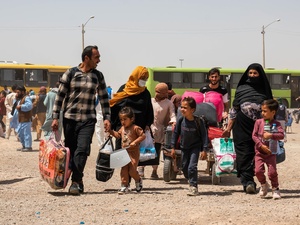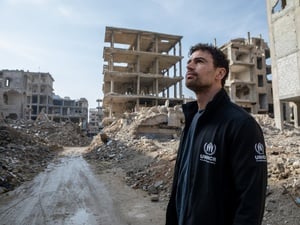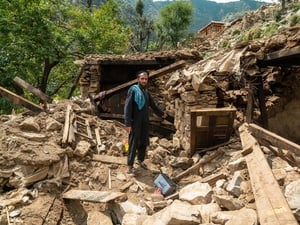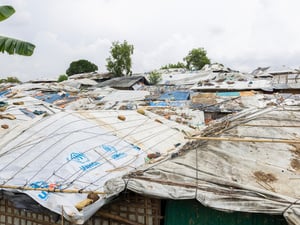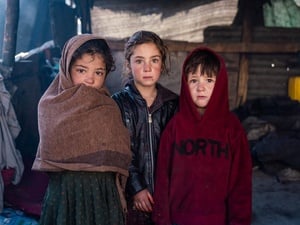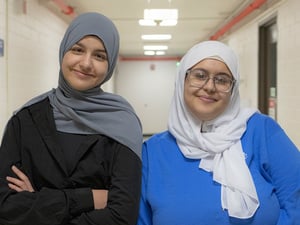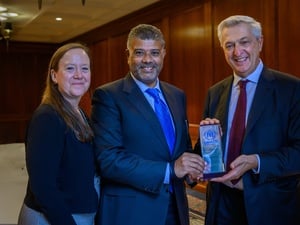Displaced athletes to make historic debut at Paralympic Games in Rio
Displaced athletes to make historic debut at Paralympic Games in Rio

In the Paralympic Games, Ibrahim will compete in the 50-metre and 100-metre freestyle events in the S10 class.
GENEVA – Athletes with disabilities have vied for glory at the Paralympic Games since 1960. This summer, for the first time, para-athletes who have faced the additional challenge of being displaced from their homeland will compete in Rio de Janeiro as the Independent Paralympic Athletes Team.
The competitors, who are originally from Iran and Syria, will follow in the footsteps of the widely celebrated Refugee Olympic Team. Although they did not win any medals, that squad of 10 athletes made history at the 2016 Summer Olympics, representing the courage and perseverance of the world’s refugees and displaced people – a population that now exceeds 65 million.
Ahead of the Paralympic Games, which open on September 7, meet the athletes who will carry an inspiring message of hope, not only for the millions of displaced people with disabilities around the world, but for everyone, everywhere.
As a boy growing up in Deir ez-Zor, Syria, Ibrahim Al-Hussein used to swim in the Euphrates River. The city's renowned suspension bridge was his starting block and diving board. His father, a swim coach, was his trainer, leading Ibrahim and several of his 13 siblings to wins at local and national swim contests.
But his swimming career was cut short as war erupted in Syria and intense fighting reached his area.
One day in 2013 Ibrahim ran to help a friend who'd been hit by bomb, only to be injured himself. He lost the lower part of his right leg, from the mid-calf downward. He fled to Turkey, where he spent much of the next year recovering. "After I got hurt, I was confined at home," he says. "It was very difficult not being able to do anything."
Ibrahim spent much of the next year teaching himself to walk again. Then he boarded an inflatable boat to Greece, where he has lived since 2014. After his injury, Ibrahim thought he'd never swim again, let alone swim competitively on the world stage. Until now.
"After 22 years of training, my dream finally came true," he said. "Sometimes I go to bed at night and I am so happy I cry."
In the Paralympic Games, Ibrahim will compete in the 50-metre and 100-metre freestyle events in the S10 sports class, one of 10 classes based on the degree of ability. His participation comes less than a year after he started swimming again last October, after a five-year break.
"It's impossible to describe the honour I feel."
In April Ibrahim carried the torch for the 2016 Olympic Games through an Athens refugee camp. It was a symbolic gesture meant to show solidarity with the world's refugees at a time when war and conflict have forced an unprecedented 65 million people from their homes.
But only recently did he learn he would go to Rio de Janeiro himself as a swimmer in the Paralympic Games.
“When I found out I would be competing in the Games, I was so happy I couldn't sit still," Ibrahim says. "I wanted to sleep, but I couldn't. It was such a wonderful feeling."
In Athens Ibrahim practices swimming with a Greek league for athletes with disabilities. On land, he walks using a prosthetic leg that a private doctor in Greece gave to him for free. His swim times are a few seconds off his personal bests from when he had full use of both legs. But Ibrahim is constantly catching up; his main competitor, he says, is himself.
"It's impossible to describe the honour I feel," Ibrahim says. "Now all I'm thinking about is doing the best I can and reaching my goal.”

For the first time, a team of refugee athletes with disabilities will compete on the world stage.
Shahrad Nasajpour, an Iranian who has been granted asylum in the United States, is also part of the team. He will compete in the discus event at the Rio Paralympics. As an athlete with cerebral palsy, he will compete in the F37 sport class. He has declined to share his story for personal reasons, and is focusing on honing his technique ahead of the Games.
*Tania Karas contributed reporting from Athens, Greece.



